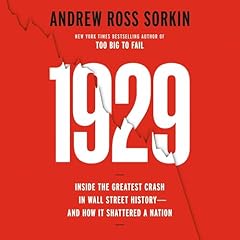
Debt - Updated and Expanded
The First 5,000 Years
Artikel konnten nicht hinzugefügt werden
Der Titel konnte nicht zum Warenkorb hinzugefügt werden.
Der Titel konnte nicht zum Merkzettel hinzugefügt werden.
„Von Wunschzettel entfernen“ fehlgeschlagen.
„Podcast folgen“ fehlgeschlagen
„Podcast nicht mehr folgen“ fehlgeschlagen
Nur 0,99 € pro Monat für die ersten 3 Monate
 Bist du Amazon Prime-Mitglied?
Bist du Amazon Prime-Mitglied?Audible 60 Tage kostenlos testen
Für 30,95 € kaufen
-
Gesprochen von:
-
Grover Gardner
-
Von:
-
David Graeber
Über diesen Titel
Now in audio, the updated and expanded edition: David Graeber's "fresh...fascinating...thought-provoking...and exceedingly timely" (Financial Times) history of debt.
Here, anthropologist David Graeber presents a stunning reversal of conventional wisdom: He shows that before there was money, there was debt. For more than 5,000 years, since the beginnings of the first agrarian empires, humans have used elaborate credit systems to buy and sell goods - that is, long before the invention of coins or cash. It is in this era, Graeber argues, that we also first encounter a society divided into debtors and creditors.
Graeber shows that arguments about debt and debt forgiveness have been at the center of political debates from Italy to China, as well as sparking innumerable insurrections. He also brilliantly demonstrates that the language of the ancient works of law and religion (words like "guilt", "sin", and "redemption") derive in large part from ancient debates about debt, and shape even our most basic ideas of right and wrong. We are still fighting these battles today without knowing it.
©2014 David Graeber (P)2015 Gildan Media LLCKritikerstimmen
very interesting and unique
Ein Fehler ist aufgetreten. Bitte versuche es in ein paar Minuten noch einmal.
Makes so much sense
Ein Fehler ist aufgetreten. Bitte versuche es in ein paar Minuten noch einmal.
Unexpectedly great
Ein Fehler ist aufgetreten. Bitte versuche es in ein paar Minuten noch einmal.
How debt is underlying our whole economic system.
Ein Fehler ist aufgetreten. Bitte versuche es in ein paar Minuten noch einmal.
David Graeber provides the great historical arc of debt and money all the way back to Mesopotamia 3000 BCE. It is shown how these concepts are deeply intertwined with cultural, religious and moral beliefs, as well as war.
Great book for anyone, there is no particular background knowledge required.
Great historical perspective
Ein Fehler ist aufgetreten. Bitte versuche es in ein paar Minuten noch einmal.



















